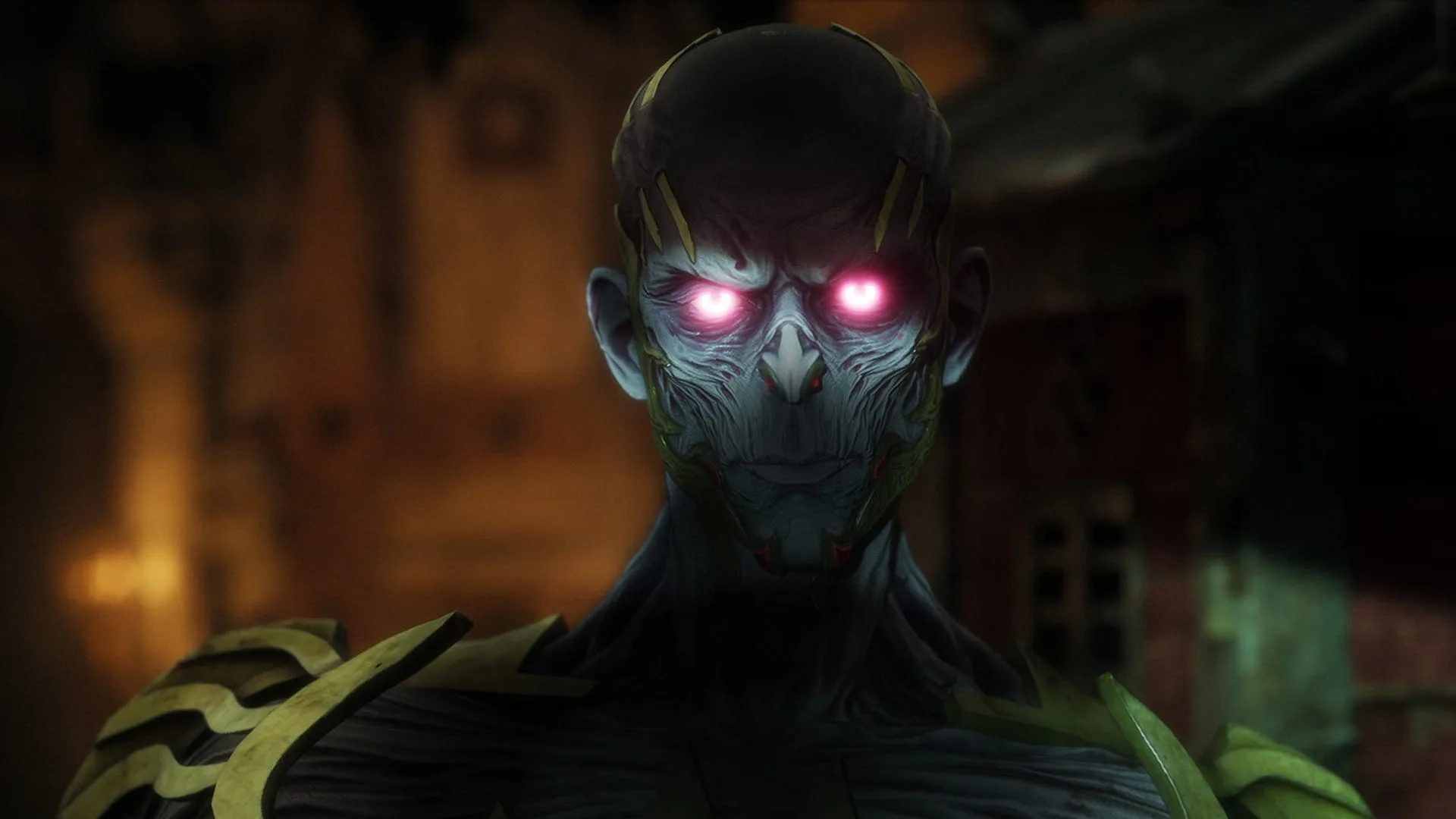“This wasn’t meant to be a game! Never!”
So screams actor Shane Rimmer in Rollerball, the 1975 cautionary tale about the dangers of corporate power, greed, and overreach. James Caan stars as Jonathan E., the greatest player to ever out-skate oblivion in the lean and lethal future sport known as Rollerball. But when the corporations decide that he has outlived his usefulness, can Jonathan keep defying the powers that be purely through his individualism and free spirit? Can any of us?
It’s the kind of question that comes part and parcel in Norman Jewison movies. The filmmaker, who directed and produced Rollerball, died last week at the age of 97, leaving behind a legacy of socially-minded films that won’t be soon forgotten. From the racially charged classic In the Heat of the Night to the Cold War satire The Russians Are Coming, The Russians Are Coming, the Teamsters analogy F.I.S.T., the Vietnam vet tale In Country, and more, Jewison was always interested in saying something with his movies.
So what does a film about a dystopian future society that reveres a gladiatorial death sport – on rollerskates! – have to say? It turns out quite a bit, even 49 years after it was released. Because for Jewison, as Rimmer’s head coach character helpfully points out, Rollerball was never meant to be a game. And he’s not just talking about the bloodsport, either.
The film starts forebodingly enough with Bach’s organ piece “Toccata and Fugue in D minor” playing on the soundtrack (you know it when you hear it) while the Rollerball stadium sits cloaked in darkness, waiting for the next batch of future-era-gladiators/victims to enter. The music is a familiar horror film accompaniment, about as far from “Take Me Out to the Ballgame” as you can get. Slowly the lights come up as workers ready the circular arena for the game, fans begin to file into their seats in the stands, and the teams take to the court, as it were: It’s Houston, Jonathan E.’s defending world champions, versus visiting Madrid, this week’s hated enemy.
But before things can start, the corporate anthem must be played. No, not the national anthem; Rollerball’s near-future world no longer has “nations,” we will learn. Instead, the planet is ruled by corporations, each of which has a specific area of interest. The Houston team, and therefore Jonathan too, falls under the purview of the Energy Corporation, as personified by the chilly exec Mr. Bartholomew (John Houseman, with eyebrows you can’t miss).
As the anthem drones on (as composed by André Previn), its utterly uninspiring and samey vibe is matched only by the expressions – or lack thereof – of the players, who dutifully stand by and wait for it to be over so the game can begin. Indeed, the only real emotion on display during the anthem appears to be Jonathan’s impatient, rhythmic slapping of his spiky-gloved fist against his leg. He can’t wait to get in there and bust open some heads.
The uniforms of the Rollerballers are amusingly dated, a kind of mix between football, hockey, and roller derby looks, complete with futuristic-by-1970s-standards font and a helmet style that I’m sure the kid who lived across the street from me got for Christmas back in 1979. But the gameplay is another matter entirely. You can practically feel the heavy-looking, metallic ball when a player catches it after it’s propelled from a sort of cannon. The physicality of these guys as they, well, beat the shit out of each other in pursuit of the ball is impressive. And when Jonathan makes the first score, the clanging sound of the goal is almost as loud as the cheers.
Oh, and did I mention they have motorcycles too?
Caan’s Bronx-born, raised-on-the-mean-streets vibe leads one to imagine Jonathan had a rough start in life and only made it to where he is today thanks to his wits and his fists. He worked his way up the corporate ladder, in a sense. But for what? He’s so big now that Energy has grown threatened by his popularity among the masses. What good is an empire’s gladiator if he becomes more popular than the empire itself? “They’re afraid of you, Jonathan,” his friend and trainer Cletus (Moses Gunn) warns him.
So Houseman’s Mr. Bartholomew explains to Jonathan, ever so politely at first but with increasing impatience, that it is time for him to retire. He’s being put out to pasture. Remember Boxer from Orwell’s Animal Farm? That’s Jonathan now, though rather than being turned into glue after slaughter like that poor character, he faces the fate of living out his life in meaningless prosperity. (Jonathan seems to have everything, but enjoys none of it.) Like Boxer, he has never questioned his overlords before, not really, not even when they took his wife Ella (Maud Adams) away to marry her off to a powerful executive. And while Jonathan – also like Boxer – is perhaps not the brightest bulb out there, he finally wakes up to how powerless he is in this world now that he’s being asked to give up his precious Rollerball.
‘Corporate society was an inevitable destiny,’ Bartholomew says. But Jonathan realizes now that there was a price for it all: freedom.
When a posh party is held in honor of Jonathan, all manner of socialite is in attendance, but whispers can be heard about the true nature of the Rollerballers. “They’re androids. They’re all programmed,” one attendee says. “They’re made in Detroit,” offers another. Are these martini-sipping, tuxedo-wearing, vacuous partiers serious? Do they really think the athletes are robots, and if so, does that give them a permission structure to enjoy the violence of the game? Or are they talking about themselves, ultimately? “We’re androids. We’re all programmed. And we do what the company tells us to do and get these nice drinks and tuxedos in return.” If Jonathan stops playing, he can still wear the tux and have the martinis too.
There are glimpses of humanity among this crowd. While a televised “Multivision” special about Jonathan’s career unspools – no slow-motion shot of the star taking out an opponent, complete with crunching sounds, goes unused (Zack Snyder would be proud) – we see one party attendee standing outside, staring off into the distance with tears in her eyes. Maybe Jonathan’s not the only one who realizes how badly it’s all gone. Either that or she just forgot to take the mood-altering drugs that everyone seems to pass around like Altoids in this world.
“Corporate society was an inevitable destiny,” Mr. Bartholomew says at one point. “A material dream world. Everything man touched became attainable.” But Jonathan realizes now that there was a price for it all: freedom. Even if, in his case, it’s the freedom to play Rollerball, which Bartholomew also points out “was created to demonstrate the futility of individual effort.” And so the stakes are set: Jonathan’s individuality against the very corporations that seek to squash everyone’s individuality.
In an age where major layoffs are happening more and more frequently while the rich become richer, it’s not that hard to see that the game Jewison was actually talking about in 1975 has only escalated in how dangerous it is in the decades since. As corporations become increasingly powerful, regular folks are powerless to stop them, even while their very livelihood lies in those same corporations’ hands. Nobody is special enough to not get sent to the glue factory – not Jonathan, and not you.
The last 15 minutes of Rollerball depict the world championship match, as Houston faces off against New York. The corporations have been changing the rules of the game since Jonathan first refused to retire, hoping to take him down via the very game he loves, and at this point Rollerball has essentially become a death match: no penalties, no substitutions, and no time limit. Last man standing wins.
Jewison stages the finale in a bleak manner. There’s no mistake now that this wasn’t meant to be a game, and the adrenaline rush of earlier matches gives way to a kind of nihilistic resignation. One by one, players on both sides are taken down – heads are crunched, roller skates are weaponized, bodies are dragged, motorcycles explode. By the end, the stadium goes eerily silent as Jonathan and just two of his opponents remain. As is often the case with the films of this era, the whiz-bang pyrotechnics we expect today from the finales of genre films are nowhere to be seen here. (Star Wars was still two years out, of course.) But the dark mood of the piece is unshakable as Jonathan dispatches one foe, and then defeats – but begs off killing – the other. He slowly makes his way to the goal and scores.
But has he won? As our hero takes a high-speed victory lap, the crowd goes wild, chanting his name over and over again. He’s bigger than ever. But is he big enough to defeat the corporation now? The film ends there, so all we can do, as viewers, is choose our side in the fight as the credits roll.
Jonathan! Jonathan! Jonathan!!!
Talk to Executive Editor Scott Collura on Twitter at @ScottCollura, or listen to his Star Trek podcast, Transporter Room 3. Or do both!

